 Post an Event
Post an Event
| Benton County Republicans’ Private Fundraising Event, “Bent-on Boots and Bling” with Trey Taylor |
| Friday, September 5, 2025 at 5:00 pm |
| Featuring Trey Taylor
Music Private Event
Friday, September 5, 2025 5:00-5:30 pm VIP Reception
5:30-8:00 pm Heavy Appetizers,
Auction, Concert
Red: $750 VIP Reception
Front Row Table Sponsor
White: $500 Table Sponsor
Blue: $50 per person
Limited Seating. Get Yours Now!!!
Support Local
Dress up: Bling, Cowboy, Patriotic Benton County Republican
FUNDRAISER
www.BentonGOP.org
Get your tickets today at:
https://www.bentongop.org/event-details/benton-county-republicans-fundraiser/form
About Trey:
Trey is the youngest African American Man in Country Music History. The Denver Post wrote
"It's impossible to miss his enthusiasm. With a fondness for cowboy boots, gaudy colors and dazzling jewelry, Trey Taylor could stand toe to toe with any of the Pop, Country or even Rap
contemporaries of his generation.“ |
| Trysting Tree Golf Club, 34028 NE Electric Rd., Corvallis |
Childhood arrivals get $495 and $200 to renew their DACA paperwork
The Biden-Harris American Rescue Plan Act passed by Congress in early 2021 gave Oregon the resources to contain COVID-19 and rebuild the economy. Under ARPA, states may use their share to replace revenues lost as a result of the pandemic and to address the economic and public health impacts of COVID-19.
To efficiently and effectively spend approximately $6.4 billion in federal funds from the American Rescue Plan Act, Governor Kate Brown has laid out principles on the Governor’s
ARPA website. Governor Brown summarizes those principles saying, “The American Rescue Plan offers Oregon the ability to turn around its economy from the impacts of the COVID-19 pandemic. With this historic relief package, Oregon can revitalize and rebuild our economies — and our communities — with equity and fairness at the center.â€
It has been contentious among legislators because Governor Brown didn’t distribute the funds in a timely manner to small businesses that were forced to close, and some have never reopened.
Apparently, there is still a reserve of funds that Representative Ricki Ruiz (D-Gresham) found to fund
HB 4122. But, does it meet what is required of ARPA funds?
HB 4122 directs the Department of Human Service to distribute funds to community-based organizations to provide one-time maximum financial assistance of $695 per individual, to recipients of federal Deferred Action for Childhood Arrivals (DACA). It’s broken down into two payments, a one-time check of $495 and up to an additional $200 for legal costs to help them renew their DACA paperwork.
A D V E R T I S E M E N T

A D V E R T I S E M E N T
Representative Ruiz amended
HB 4122 so funds are distributed through community-based organizations instead of directly to every DACA eligible individual in Oregon. This little wordsmithing appears to provide the appearance of meeting a community principle. But, does it provide economic relief and replace revenues lost as a result of the pandemic?
HB 4122 appropriates $7,000,000 for distribution to approximately 9,700 DACA eligible individuals. Dare we ask the balance of ARPA funds? The bill passed out of the House Committee on Human Services referred to the Joint Committee on Ways and Means.
--Donna Bleiler| Post Date: 2022-02-14 11:52:28 | Last Update: 2022-02-15 09:48:23 |
Critics say it opens the door for fraud
State Representative Julie Fahey (D-Eugene) has brought forward
HB 4133 to use the last four digits of a voter's social security to register voters online. Currently, this can be done on a paper application, but not online, using an Oregon ID or drivers license. Third party organizations will be able to gather and submit those social security numbers for voters as well.
Chair Barbara Smith Warner and the committee voted it to the House Floor without discussing the tremendous submission of 172 Oregonians who took the time to let these legislators know they opposed the measure as opposed to the 17 who approved of the idea. That is a 10-1 ratio against the measure.
Many of those who supported the bill may possibly benefit as one of the third party entities that will have the ability to gather social security numbers and register voters through their organizations. What happens to this information before and after it is submitted online? What if they make an app to do this? Those processes were not discussed.
Some of the supporters were Planned Parenthood, Oregon AFSCME, SEIU, ACLU, PCUN, Next Up Action Group and Oregon Student Association. Some stated that they were Political Policy Analyst or Political Strategists for these various groups. Their testimony was about modernizing the election system, equity, and ease in voting.
The testimony against the bill was spirited and diverse.
Steve Mangold said, “Who are these third party organizations?†and Robert Hafer suggested that “this will make forever Oregon voting corrupt, regardless of party in powerâ€
“I want all legal, eligible voters to be heard and counted, regardless of their party affiliation,†said Sloan Neal. “That's why it's absolutely critical we finally get serious about election integrity. This system is fraught with potential abuse. Voters who are legal residents of this state should not have their voices and votes watered down or jeopardized by some swiss-cheese system that allows any bad actor to cast a fraudulent vote. Protect legitimate votes!â€
A D V E R T I S E M E N T

A D V E R T I S E M E N T
Marcus Winston considered the technical aspect of the bill, “I Strongly oppose
HB 4133. It is a completely misguided and disingenuous attempt to make "voter registration easy". Specifically, subsection 5 requiring an Application Programming Interface will open up the voter registration system to incalculable fraud. Computer APIs are very simple to hack and misuse. I know this because I am, by profession, a computer engineer. Putting an API on the voter registration system is, quite simply, to open it up to untold fraud. The State would be negligent to allow such a thing. The only responsible action is to let this bill die in committee.â€
The bill passed out of the committee on party lines. 4-3. It now waits a second hearing on the house floor and then a vote by the entire House before it goes to the Senate.
--Janice Dysinger| Post Date: 2022-02-14 11:22:21 | Last Update: 2022-02-14 11:52:28 |
The pandemic emergencies are still very raw to many
Less than half way through the Oregon Legislative Short Session and the trickery is starting to show up. With barely 24 hours notice, Senator Deb Patterson (D-Salem), chair of the Senate Committee on Health Care, rushed through a committee sponsored amendment to
SB 1529. What was a good bill that authorized pharmacy or pharmacy technician to swipe identification card or driver license of purchaser of pseudoephedrine or ephedrine, turned ugly.
The amendment that was pushed through by Democrats on the committee allows the Oregon Health Authority to declare a health care emergency and to deploy the State Emergency Registry of Volunteers in Oregon (SERV-OR). To completely close voters out of their voice, the bill declares an emergency, effective upon passage. This emergency prevents any challenges to the bill by voters.
SB 1529 redefines ‘Health care emergency’ to include:
- A state of emergency declared under ORS 401.165;
- A state of public health emergency declared under ORS 433.441; or
- A determination by the Public Health Director that there exists a disease outbreak, epidemic or other condition of public health importance statewide or in a specified geographic area of this state.
A last-minute amendment in the work session prevented the public from giving testimony or submitting testimony for public record. The pandemic emergencies are still very raw to many, so threats of more emergencies won’t set well with those still struggling.
The bill goes to the
Senate floor for a vote this week, then to the House for a public hearing.
--Donna Bleiler| Post Date: 2022-02-13 22:27:20 | Last Update: 2022-02-13 22:32:19 |
Cynthia Kaufman Noble will replace Judge Collins
Oregon's Governor Kate Brown has announced that she will appoint Cynthia Kaufman Noble to the Yamhill County Circuit Court.
Kaufman Noble will fill the vacancy created by the retirement of Judge John L. Collins.
Her appointment is effective immediately.
“Cynthia Kaufman Noble’s broad experience and history of service in the Yamhill County community make her an excellent fit for this position,†Governor Brown said. “I look forward to seeing her new role as a Circuit Court Judge.â€
Kaufman Noble currently divides her time between her roles as Municipal Court Judge for the City of McMinnville, Chief Judge for the Tribal Court of the Confederated Tribes of the Grand Ronde Community of Oregon, and as an attorney in private practice in McMinnville doing primarily juvenile defense work and serving as a family law mediator.
A D V E R T I S E M E N T

A D V E R T I S E M E N T
Over the course of her 29-year legal career, she has also served as a city prosecutor for the city of McMinnville, an attorney for Legal Aid, and has maintained her own private practice for doing defense-side criminal and juvenile work, in addition to family law. Kaufman Noble earned her bachelor's in fine arts from Syracuse University, and her law degree from Willamette University College of Law.
Kaufman Noble currently serves on the Tribal Court State Court Forum and the Ensuring Racial Justice Committee; as a board member for the Oregon Municipal Judges Association and the Yamhill County Bar Association.
--Bruce Armstrong| Post Date: 2022-02-13 11:01:18 | Last Update: 2022-02-13 11:13:36 |
“It is grooming at best, evil at worst.â€
Representative Teresa Alonso Leon (D-Woodburn) has introduced
HB 4091, which does a number of things. It develops a statewide education plan for students who are Native Hawaiian or Pacific Islander; requires all statewide education plans to include strategies that provide for alignment with other statewide education plans; and directs Department of Education to revise processes for collection of racial and ethnic data for purpose of developing and implementing statewide education plans.
This bill also has a funding segment providing grants to educational entities implementing a plan from the Statewide Education Initiative Account. Hidden in the middle of what the Account can be used to fund is added “the minority gender identity or sexual orientation education plan developed under ORS 329.847. Even though it is bolded along with and next to the funding for Native Hawaiian or Pacific Islander education plans, it runs together without notice. ORS 329.847 was also added as part of the education plan for early childhood through post-secondary education under all the statutes for students identified as slow-learners.
Rep. Alonso Leon chairs the House Committee on Education and made no mention of this added funding either in the bill summary or during the discussion, until the committee passed the bill. Why is this significant?
Parents are just finding out that their elementary student is being invited to join a QSA club at their school. They are asking why they aren’t informed of clubs. QSA stands for Queer Straight Alliance or Queer & Sexuality Alliance. It seems that the LGBTQ has taken their minority status as a right to invade elementary schools motivating middle school students who are questioning their identity to start QSA Clubs. A slide presentation with an invitation to join the QSA Club was presented to all 4th and 5th graders at Raleigh Hills Elementary School in Beaverton School District, and now showing up in other schools.
A public records request revealed predatory behavior on the part of the social worker, district personnel, and principal pressuring kids into joining this club by signing a contact form without parental knowledge or consent. The record shows district leadership, Pat McCreery, sought district counsel’s guidance on permission slips trying to not tell parents. The district’s legal counsel responded: â€In summary, it looks like the permission part is needed for student transportation, not general participation, and to answer the question of who is in the building before/after hours, not why they are there.â€
For a club to be able to occur on a school campus, a teacher or other school staff has to be the sponsor and it has to get administration approval. The administrator approved Amanda Cook, Raleigh Hills Elementary Social Worker, as the school faculty advisor for the QSA Club. Her request states, “We have a small group of students now asking and advocating to start a QSA, and I’m hopeful we can start after winter break.†Did students contact her, or did she instigate the contact? Cook put together the material for the club invitation and used classroom hours for the presentation. Her office is the meeting place during lunch to avoid contacting parents.
The club is intended to be student run. However, Jeanette Schade says, “public records requests produced emails shared with many different campuses and district personnel to find a way to get QSA clubs going on October 20, 2021. This goes all the way up to the district level, pushing this hard onto other elementary campuses.†There are also emails crafting meeting notices so parents won’t suspect their child is attending. Raleigh Hills Principal, Jennifer DeMartino, is trying to find a way to get this club into elementary schools. It seems the Beaverton School District administration and QSA club promoters are finding ways to communicate to avoid public record requests.
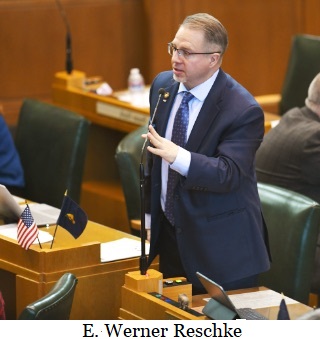
The slides say QSA is a community where everyone belongs; students who identify as LGBTQ+, their allies, and those who want to learn more. One line says “What is said here, stays here†advocating to the students to keep things from their parents. Another slide addresses: What will we do?
- Have conversations about identity, gender, equal rights and social issues that are important to you
- Explore LGBTQ+ history and activism
- Discuss personal struggles and successes in a supportive space
- Advocate for change in our school and community.
Representative E Werner Reschke (R-Klamath Falls) responded to the situation, “This is shocking. It is grooming at best, evil at worst. Sexualizing children is wrong, period, full stop. It is child abuse, no matter whether done by a pedophile or by the state.â€
Jeanette Schade, educator for 24 years, stated in public testimony, “It is absolutely appalling that school teachers and officials are partaking in this type of behavior who are supposed to be ‘safe’ adults. These are 9- and 10-year-olds. Keep the personal and social politics out of the schools. Stop this predatory behavior and get back to teaching reading, writing and arithmetic without indoctrination.â€
HB 4091 opens the door to support these clubs and now targets the most vulnerable.
--Staff Reports| Post Date: 2022-02-12 06:48:43 | Last Update: 2022-02-12 01:00:09 |
“If you’re not familiar with a socialist agenda, read this billâ€
The Senate Committee on Labor and Business has voted unanimously to move
SB 1545 out of Committee, clearing its first legislative hurdle. This bill will focus targeted investments on building career pathways in targeted sectors, including health care, manufacturing and construction and was introduced at the request of Governor Kate Brown.
“We need to build an economy that works for working families and Oregon businesses,†said Senator Kathleen Taylor (D-Portland), Chair of the Senate Committee on Labor and Business. “That means investing in skills training and reducing barriers to people working to build their careers.
SB 1545 will achieve that goal by expanding opportunities for hardworking Oregonians.â€
Not everyone agreed.
Donna Bleiler submitted testimony, saying "I strongly oppose this bill. If you're not familiar with a socialist agenda, read this bill.
$115.5 million of wealth redistribution."
“The pandemic created unprecedented challenges for many of our frontline workers, including health care workers,†said Senator Deb Patterson (D-Salem), Chair of the Senate Committee on Health Care. “Staffing shortages in health care settings affect quality of care and the ability of health care workers to do their jobs.
SB 1545 will help Oregonians build their careers in health care, improving patient outcomes and the economic wellbeing of their families.â€
A D V E R T I S E M E N T

A D V E R T I S E M E N T
Testimony from David Wall pointed out that, "Priority populations means Communities of color and Women.
SB 1545 supports and codifies into Oregon law 'systemic racism' and eliminates 'equal treatment of everyone under the law'. I cannot support 'systemic racism' and or preferential treatment of one person over another.
SB 1545 creates and expands on various grant and advisory programs to provide increased access for what it describes as "priority populations" to workforce programs and training opportunities in health care, manufacturing and construction.
SB 1545 now goes to the Joint Committee on Ways and Means for consideration.
--Staff Reports| Post Date: 2022-02-11 22:25:55 | Last Update: 2022-02-12 13:51:56 |
ODA is now accepting applications
The Oregon Department of Agriculture (ODA) Director Alexis Taylor announces the launch of a six-week application period (February 9 – March 23 Noon PT) for the new Oregon Meat Processing Infrastructure and Capacity Building Grant.
The $2 million investment comes from the 2021 Oregon Legislature’s state funding package. The COVID-19 pandemic highlighted the need for more options in meat processing for livestock raised in Oregon.
“These critical resources will expand Oregon’s regional meat processing capacity and strengthen our food supply chain from disruptions we saw early on in the pandemic,†said Taylor. “I am excited to see the proposals we receive which will support our rural economies, open new markets for Oregon products, and connect local consumers with local producers and products.â€
Grant awards will be capped at $500,000, recognizing the significant investment meat processing facilities and equipment requires. ODA anticipates the requests will exceed available funds; however, this investment will help support the long-term economic and market development.
The Oregon Meat Processing Infrastructure and Capacity Building Grant are open to all Oregon meat processors, including slaughter facilities who fall into one of three categories:
- Those planning to expand meat processing capacity to include animals raised in Oregon who also plan to operate under the State Meat Inspection Program; or
- Those planning to build a new establishment to process animals raised in Oregon who also plan to operate under the State Meat Inspection Program; or
- An official federal establishment is operating under USDA inspection also planning to increase meat processing from animals raised in Oregon.
In addition to the grant, ODA has also completed a draft plan to start a State Meat Inspection Program that is expected to begin in July 2022. The state’s program will be equal to USDA in all its requirements. Stay tuned for updates from ODA. For more information about USDA requirements, please visit
their website.
A D V E R T I S E M E N T

A D V E R T I S E M E N T
For the grant application form and more information about the Oregon Meat Processing Infrastructure and Capacity Grant, please visit the
Oregon Meat Initiative webpage.
For additional questions or to receive a paper application, please contact
ODA Trade Development Manager Gary Neuschwander at (503) 551-1706.
--Bruce Armstrong| Post Date: 2022-02-11 16:21:58 | Last Update: 2022-02-11 17:06:02 |
It must be an election year
Public voices rang out in the capitol yesterday.
HB 4079, Oregon’s first
sales tax bill was scheduled for a hearing at 1 PM. Just hours prior to the hearing, the House Committee on Human Services Chair, Anna Williams (D-Hood River) suddenly took the bill off the agenda and removed it from the committee along with hundreds of testimonies that had been submitted.
Representative E. Werner Reschke (R-Klamath Falls) said, “the only explanation is you spoke up. You said no. You made the difference.â€
Choosing
HB 4079 as Oregon's first ever identifiable sales tax that didn’t address safety or educational issues that are at the top of everyone’s minds may have doomed it before it received a hearing. The purpose of the sales tax was to fund $750 monthly debit cards to the homeless and people under the poverty level.
Oregonians have voted down a sales tax six times, but more than saying no to a sales tax, is the current distrust of government. Even if they had proposed an offset in income taxes, the economic environment is not in favor for the Democrat leadership to advance a new tax.
Oregonians who signed up to testify or submitted testimony, can pat themselves on the back, and stay involved. There are election bills, gun bills and education bills flying through the system that still need your voices.
--Donna Bleiler| Post Date: 2022-02-10 22:35:15 | Last Update: 2022-02-10 22:44:38 |
Creates a collaborative from 15% of the population to meet an equity criterion
The last three Oregon legislative sessions have been a concentrated effort to change laws from “equality†to “equity,†contrary to the Oregon and U.S. Constitutions. Governor Brown has made it a priority for the legislative majority party. To help, minorities have been appointed to replace legislators who leave. There is now 30% of the majority party representing 15% of the minority population.
The march towards equity for racial, ethnic, underrepresented or underserved, sexual identity, English language learners, disabled minorities and poverty communities is being prioritized in every aspect of our lives and is seen in almost every legislative proposal. Our schools aren’t exempt.
HB 4099 was initially introduced in 2021 as
HB 3363 with a proposed $1 million price tag, but left blank. Representative Andrea Valderrama (D-Portland) re-introduced the bill as primary sponsor of
HB 4099. What is so desirable to resurrect this bill is the establishment of the Racial Equity and Justice Youth Collaborative. The formation of the collaborative isn’t simple, but has the potential of impacting the whole education system.
This bill creates a state-level student collaborative drawing members from 15% of the population to meet an equity criterion. The selection of members is done by a work group of racial, ethnic, underrepresented or underserved, sexual identity, English language learners, disabled minorities and poverty communities that will determine the criteria for selecting members for the collaborative, recommend names to Governor, and mentor youth members in the collaborative.
A D V E R T I S E M E N T

A D V E R T I S E M E N T
The same membership criteria applies to the collaborative as used for the work group. The purpose of the collaborative is to serve at the will of the Governor to make recommendations on educational policy, and consider racial equity and justice and align with other statewide efforts for racial equity and justice when developing goals and criteria for making recommendations. They will identify best practices for reporting racist incidents or hate or bias crime. This amounts to giving 15% of students a say over the remaining 85% of the students.

What does this mean to school districts? School districts are to provide the collaborative members with counseling support, mental health support, tutoring, an adult mentor, and an opportunity to provide peer support or be a youth mentor. Individual schools, school districts, alternative education programs, or ESDs have no local control. All control is exercised by the Department of Education, whom are requesting $372,412 per biennium to administer and determine the training that may be required.
Who will do this administration and training? Since July 2018, Carmen Xiomara Urbina has been the Oregon Department of Education Deputy Director and works with agencies, executive leadership team, directors and principals regarding equity, diversity and inclusion helping to guide their approach.
Urbina also owns Oregon Center for Educational Equity (OCEE), trainers in equity and inclusion since December 2017. The license lapse, but was reinstated August 16, 2018, a month after she was hired by ODE, to do business with multiple public agencies and organizations in Oregon. It remains active through 2021.
Urbina’s dual activities were challenged when they overlapped in August 2020, promoting her own company to school superintendents to meet state requirements in equity and inclusion. More evidence is being pursued.
Besides the fox in the hen house, the Racial Equity and Justice Youth Collaborative is pacific to a group exclusive of others that teaches segregation, by its structure, as their norm. And, teaching them how to discriminate and be discriminated against. No equity agenda can force unity when the criteria segregates.
HB 4099 captures vulnerable youth in the quicksand of government, programming them to believe that government provides the only solution to racial, cultural, and ethnic conflicts.
--Donna Bleiler| Post Date: 2022-02-10 17:37:20 | Last Update: 2022-02-10 22:35:15 |
“The hypocrisy is unbelievableâ€
Oregon State Senator Dallas Heard (R-Roseburg) released the following statement regarding masks.
“The assault on freedom by the radical left against all Oregonians is simply wrong. This clear attempt to enslave all Oregonians, especially our children must be stopped. It is alarming to see how many elitist officials have been uncovered using COVID as a political weapon, a trojan horse to secretly steal the government and our freedoms away from ‘We The People’. Yesterday was no exception. When I attempted to speak out and peacefully protest their immoral mandates against our children and the people of Oregon, the Senate Democrats directly infringed on my constitutionally protected speech yet again and refused to allow me to exercise that right.
“On Tuesday of this week, in a small school district in the greater Roseburg area, 50+ middle and high school students were suspended and sent home from school for refusing to wear masks. They were temporarily expelled, just as all of the citizens of Oregon were expelled from their own capitol building during the 2021 legislative session. Enough! It is time to stand up to this tyranny against our children! Yesterday, the hypocrisy of Democrat Senate President Peter Courtney was exposed as I revealed a photograph of him blatantly unmasked on the Senate floor while mandating all others be masked. The hypocrisy is unbelievable.
 “I
“Instead of admitting that these mandates have been a political science experiment and allowing me to continue speaking, he turned my microphone off and told me that I was required to leave the Senate floor unless I submitted and donned a mask. All this as I was standing next to a picture of him unmasked in that same room. I decided to leave the floor…for now. The unparalleled hypocrisy of Oregon’s most powerful Democrat government officials is now complete. Kate Brown, Tina Kotek, and now Peter Courtney have all been exposed for not adhering to their own tyrannical rules being forced upon the children and people of Oregon.
“How many Oregonians have lost their jobs? How many have lost their homes or education because of those elected officials? How many in Oregon have been fined, discriminated against, had their schools shut down, or experienced deep depression because of the isolation we have all had to endure at their command?
“I am calling on all Democrats and Republicans of the legislative assembly to bring forward a bill that will strip the office of the Governor of these easily abused and manipulated emergency powers. The madness must end.
“To my fellow Republican House and Senate members, please join me in refusing to wear masks on the House and Senate floors going forward.
“To the people of Oregon, we cannot do this alone.
“This radical hypocrisy and oppression cannot continue to be submitted to!â€
--Staff Reports| Post Date: 2022-02-10 17:03:36 | Last Update: 2022-02-10 17:37:20 |
“Let’s learn from what other states have doneâ€
Oregon House Republican members of the House Committee on Business and Labor announced an Oregon solution for mandatory agriculture overtime pay to benefit both employees and farms.
A February 8 public hearing held by the House Committee on Business and Labor received testimony from more than 100 individuals with comments or concerns about a proposal mandating overtime pay in agriculture. More than 70 Oregonians and farmers from across the state spoke to the uniqueness of agriculture in Oregon and the need for fixes to the agriculture overtime proposal. Around 20 labor union representatives and their allies supported the proposal without changes.
Republican members of the committee, led by Representative Shelly Boshart Davis (R-Albany) introduced a
amendment to
HB 4002 with three elements for an agriculture overtime proposal. These changes incorporate a year of comments from a diverse range of Oregonians and reflects Oregon’s unique agriculture industry:
- Flexibility in hours during peak harvest weeks -- Recognizing that nature dictates hours of work is similar to legislation passed in Hawaii and Colorado.
- Increase standard hours available to employees from 40-hours to 50-hours -- Aligning the threshold of hours with the demands of the state’s growing season is similar to Maryland, Minnesota and Colorado laws.
- Exempts livestock -- Hours of care for dairy cows, sheep and other animals cannot be predicted or fit into a standard workday. Federal law, Oregon law and other states treat livestock differently to guarantee access to care for the health of livestock.

“These are three elements to a proposal to create an Oregon solution for agriculture overtime,†said Representative Daniel Bonham (R-The Dalles) who serves as co vice-chair. “Let’s learn from what other states have done and incorporate feedback we’ve received from Oregonians. We have an opportunity to make this a workable solution for our state that benefits both employees and farms. Without these changes we will only cause harm to both by reducing employee hours and increasing labor costs.â€

“We need this Oregon solution that reflects our unique state and the unpredictability of agriculture,†added Representative Shelly Boshart Davis (R-Albany). “These fixes are carefully crafted to avoid unintended consequences for Oregon’s farmworkers and our family farms and ranches. We invite our colleagues to join us by passing an Oregon version of agriculture overtime that supports jobs and preserves family farms.â€
“An overtime threshold that ignores the complexities of Oregon agriculture and fails both our farms and employees is not the solution Oregonians deserve,†said Representative Jami Cate (R-Lebanon). “We need to truly heed the testimony of those directly responsible for implementing this policy on our farms and pass the solution Oregonians expect - balancing the needs of our farms and employees. Anything less is a disgrace to the confidence voters put in this Legislative body.â€
“These fixes reflect input from Oregonians as well as the complex and unique nature of our state’s agriculture,†added Representative Jessica George (R-St. Paul). “Oregon agriculture requires an Oregon solution that protects employee salaries and farms. That’s what this amendment represents.â€
--Staff Reports| Post Date: 2022-02-10 09:38:07 | Last Update: 2022-02-10 17:03:36 |
Using healthcare to undermine parental authority
Across the country, parents are beginning to step-up and demand answers about what is going on in their public schools. Concerned parents and taxpayers in rural Lebanon, Oregon have recently been forced into the fray by a progressive school superintendent Bo Yates, attempting an end-run around parents, taxpayers and the school board to install a school-based health clinic (SBHC) in Lebanon’s high school under the direction of Principal Craig Swanson. According to Lindsey Perhson, a nurse and local parent activated by school concerns,
“No one will argue that healthcare for our children is incredibly important, that’s not the issue. The good news is, every child in Lebanon already has a fully-funded means to acquire health care and also has access to medical care. In Lebanon, a free clinic, birth control clinic, mental health clinic, two urgent care centers, the hospital campus and provider clinics are just blocks from the high school—easy walking distance. There is no need to duplicate these services in the high-schoolâ€.
Many Lebanon parents and taxpayers are wondering, “What is this really all about?â€
SBHCs are not just about “free†medical care, strep throat and sprained ankles. They also have an ominous side, especially with the legal synchrony provided by Oregon’s minor consent laws, the most liberal in the nation. These laws actually transfer the God-given parent-child primacy right to the state. Oregon’s
minor consent laws can drive a wedge between parent and child just when they need each other most.

In Oregon, a child any age can access birth control services, testing, invasive examinations, hormone treatments and abortion referral without parental notification or consent (ORS 109.610, ORS 109.640).
A child 14 or older may access mental health, chemical or alcohol treatment without parental consent (ORS 109.675). Children 15 or older can consent to any medical, surgical, dental, or other procedure they wish without consent. Remember, these are sixth, seventh, eighth and ninth grade children. They cannot get a driver’s license, purchase a car, give informed consent, work a full-time job or be held accountable for many criminal offenses because, well, they’re children after all.
According to science, the brain and emotional state are not developed sufficiently to make such complex decisions. According to Oregon law they can decide to begin transitioning to the opposite sex, be provided psychotropic medications, terminate a pregnancy, have a surgical procedure and still catch the bus home without their parent’s knowledge or consent. Let’s be clear, there is still an adult involved—it may be the state sponsored adult; just not you, the parent.
To ensure the parental shut-out is complete, Oregon law shields SBHC clinics and providers from civil liability for treatment or procedures provided at SBHCs. The Family Educational Rights and Privacy Act (FERPA) protects privacy of educational and school nurse information but must be provided to parents upon written request. Conversely, SBHC medical services fall under the Health Insurance Portability and Accountability Act (HIPAA) and will not be disclosed to the parent. That is, unless the child provides the parent with a written permission slip. This is not a joke.
An angry parent’s call to the SBHC to find out why their daughter has shut herself into her bedroom crying for the last two days could easily get a response like this, “We’re sure sorry, but under state law we can neither confirm nor deny your daughter was even seen or referred by the clinicâ€. The school administration, in turn, will tell you the SBHC is run by a private medical agency that they have no control over. Do you see how this system can be used to undermine parental authority and a critical need to know?
If parents have private health insurance, that will be billed—they just won’t know about it unless their child thinks they should know. Taxpayers fund the rest through Medicaid, reproductive health access funds and other tax funded billing mechanisms—the same billing process used in all Lebanon’s community clinics—it is not unique to SBHCs. Providers and administrators are highly paid and every visit gets billed. Taxpayers are on the hook for everything else.
A D V E R T I S E M E N T

A D V E R T I S E M E N T
Additionally, according to the
SBHC Status Report 2021, three out of 10 SBHC visits are not children. SBHC’s often open the clinic to homeless, drug addicts, indigent persons and illegal immigrants all on school grounds during school hours—what could go wrong?
Since the dawn of humanity, many young adults go through phases where they “hate†their parents, some may go so far as to say this out loud in an SBHC councilors office. This could easily earn the parents a visit from a sheriff or social worker, asking nosy questions, removing guns and creating government chaos for a situation that typically blows over in days. As you can imagine, SBHCs provide endless possibilities for government intervention and control over family life using children as the lever. After all, that may well be the point. Missie Carra a nurse from Ft Worth, Texas did her own investigative work into SBHC development and political underpinnings and outlined her findings in an eye-opening lecture given at the NW Safe Schools Summit called “
The Playbookâ€.
Meanwhile, back in Lebanon, data from the National Center for Education Statistics shows that Lebanon High School ranks 229th out of 266 high schools in Oregon, 77% of 11th graders are well below grade level in math and science and the drop-out rate is approaching 30%. That’s not a medical issue. That’s an academic failure of leadership. Many parents want their school to focus on reading, writing, mathematics, civics, history, science and mostly critical thinking. If the school does its job, then Lebanon’s children will have the necessary skill to walk the 500 yards from the high school to the medical clinic. Better yet, maybe their parents will go with them.
--Clarke Vesper| Post Date: 2022-02-10 00:45:55 | Last Update: 2022-02-10 10:05:00 |
Read More Articles






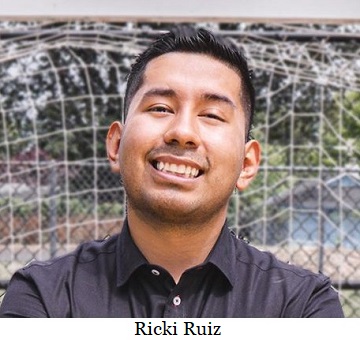




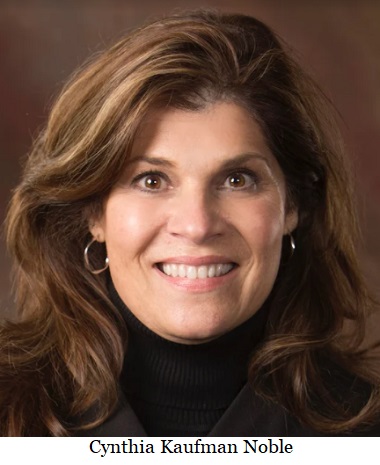

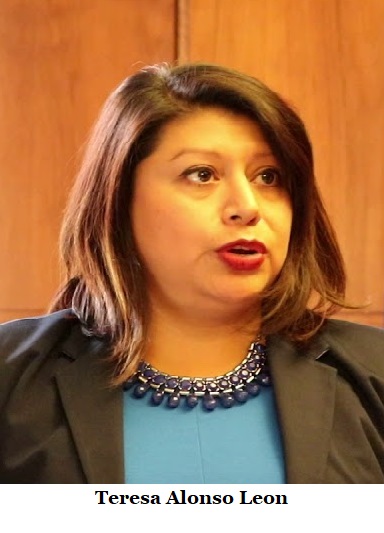
 The slides say QSA is a community where everyone belongs; students who identify as LGBTQ+, their allies, and those who want to learn more. One line says “What is said here, stays here†advocating to the students to keep things from their parents. Another slide addresses: What will we do?
The slides say QSA is a community where everyone belongs; students who identify as LGBTQ+, their allies, and those who want to learn more. One line says “What is said here, stays here†advocating to the students to keep things from their parents. Another slide addresses: What will we do?




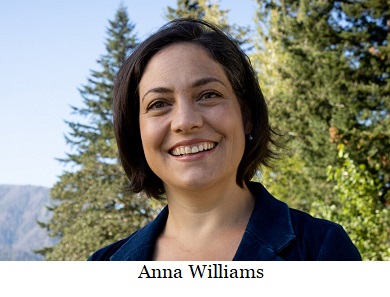


 What does this mean to school districts? School districts are to provide the collaborative members with counseling support, mental health support, tutoring, an adult mentor, and an opportunity to provide peer support or be a youth mentor. Individual schools, school districts, alternative education programs, or ESDs have no local control. All control is exercised by the Department of Education, whom are requesting $372,412 per biennium to administer and determine the training that may be required.
What does this mean to school districts? School districts are to provide the collaborative members with counseling support, mental health support, tutoring, an adult mentor, and an opportunity to provide peer support or be a youth mentor. Individual schools, school districts, alternative education programs, or ESDs have no local control. All control is exercised by the Department of Education, whom are requesting $372,412 per biennium to administer and determine the training that may be required.

 “Instead of admitting that these mandates have been a political science experiment and allowing me to continue speaking, he turned my microphone off and told me that I was required to leave the Senate floor unless I submitted and donned a mask. All this as I was standing next to a picture of him unmasked in that same room. I decided to leave the floor…for now. The unparalleled hypocrisy of Oregon’s most powerful Democrat government officials is now complete. Kate Brown, Tina Kotek, and now Peter Courtney have all been exposed for not adhering to their own tyrannical rules being forced upon the children and people of Oregon.
“Instead of admitting that these mandates have been a political science experiment and allowing me to continue speaking, he turned my microphone off and told me that I was required to leave the Senate floor unless I submitted and donned a mask. All this as I was standing next to a picture of him unmasked in that same room. I decided to leave the floor…for now. The unparalleled hypocrisy of Oregon’s most powerful Democrat government officials is now complete. Kate Brown, Tina Kotek, and now Peter Courtney have all been exposed for not adhering to their own tyrannical rules being forced upon the children and people of Oregon.

 “These are three elements to a proposal to create an Oregon solution for agriculture overtime,†said Representative Daniel Bonham (R-The Dalles) who serves as co vice-chair. “Let’s learn from what other states have done and incorporate feedback we’ve received from Oregonians. We have an opportunity to make this a workable solution for our state that benefits both employees and farms. Without these changes we will only cause harm to both by reducing employee hours and increasing labor costs.â€
“These are three elements to a proposal to create an Oregon solution for agriculture overtime,†said Representative Daniel Bonham (R-The Dalles) who serves as co vice-chair. “Let’s learn from what other states have done and incorporate feedback we’ve received from Oregonians. We have an opportunity to make this a workable solution for our state that benefits both employees and farms. Without these changes we will only cause harm to both by reducing employee hours and increasing labor costs.â€
 “We need this Oregon solution that reflects our unique state and the unpredictability of agriculture,†added Representative Shelly Boshart Davis (R-Albany). “These fixes are carefully crafted to avoid unintended consequences for Oregon’s farmworkers and our family farms and ranches. We invite our colleagues to join us by passing an Oregon version of agriculture overtime that supports jobs and preserves family farms.â€
“We need this Oregon solution that reflects our unique state and the unpredictability of agriculture,†added Representative Shelly Boshart Davis (R-Albany). “These fixes are carefully crafted to avoid unintended consequences for Oregon’s farmworkers and our family farms and ranches. We invite our colleagues to join us by passing an Oregon version of agriculture overtime that supports jobs and preserves family farms.â€

 In Oregon, a child any age can access birth control services, testing, invasive examinations, hormone treatments and abortion referral without parental notification or consent (ORS 109.610, ORS 109.640).
In Oregon, a child any age can access birth control services, testing, invasive examinations, hormone treatments and abortion referral without parental notification or consent (ORS 109.610, ORS 109.640).
